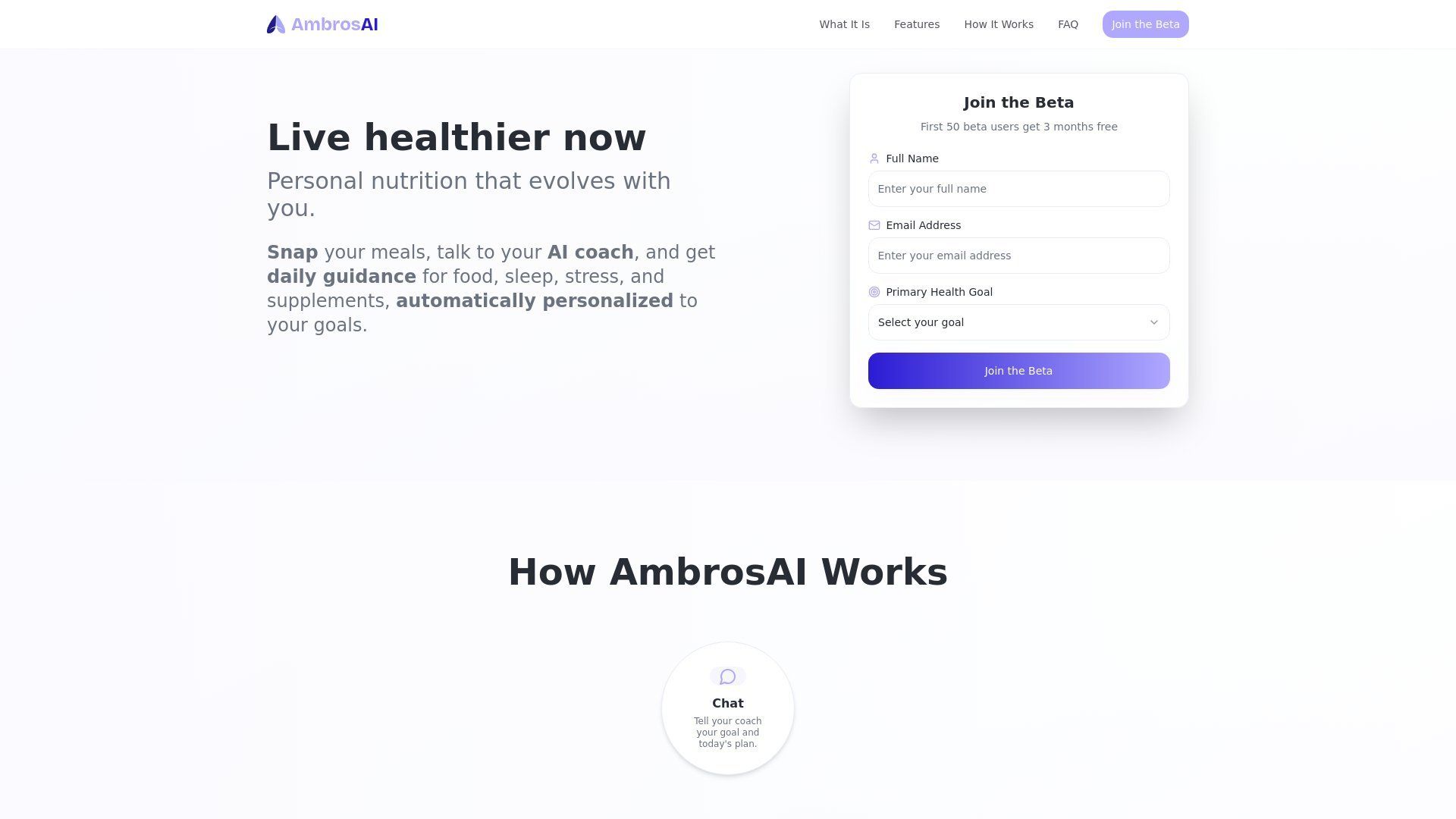Ambrosia AI introduces a novel approach to personalized AI agents, enabling users to build unique digital companions simply by describing them in natural language. This platform bypasses complex configuration, leveraging advanced language models to translate user descriptions directly into distinct AI personalities and behaviors, signaling a shift towards more intuitive AI creation.
Forget dropdown menus and sliders. Ambrosia AI is betting that the future of personalized artificial intelligence lies in something far more natural: conversation. The newly launched platform allows users to create bespoke AI companions not through intricate settings, but by simply describing the desired personality, knowledge, and purpose in plain language.

The Core Technology: From Description to Digital Entity
Ambrosia AI's core innovation lies in its ability to interpret rich, unstructured user descriptions and translate them into a functioning AI agent. Users can articulate traits like "a patient history tutor with a dry wit" or "a supportive wellness coach knowledgeable in CBT techniques." The platform's underlying large language models (LLMs) process these descriptions, inferring the necessary parameters – communication style, knowledge domains, response patterns, and interaction goals – to instantiate a unique digital companion.
"We're moving beyond pre-defined personas. Our system interprets intent and nuance in the user's description, dynamically building an agent that embodies those characteristics. It's personalization driven by natural language understanding, not configuration," explains the Ambrosia AI team.
Implications for Developers and the AI Landscape
This approach represents a significant departure from traditional agent creation:
- Lowered Barrier to Entry: Democratizes sophisticated AI agent creation, removing the need for technical prompts or programming knowledge.
- Nuanced Personalization: Enables the creation of agents with highly specific, contextually rich personalities and expertise that might be impractical to configure manually.
- Evolving Interaction: Positions natural language not just as the interaction method with an AI, but as the primary creation tool.
Developers should note the underlying implication: Ambrosia AI's success hinges on sophisticated prompt engineering and fine-tuning techniques happening behind the scenes. The platform acts as an abstraction layer, converting user intent into complex LLM directives, raising questions about transparency and control over the agent's foundational "prompt."
Beyond Companionship: Potential and Challenges
While marketed heavily towards companionship, the technology's potential extends to education, specialized customer support, therapy aids, and personalized coaching. However, this ease of creation also intensifies existing challenges:
- Ethical Safeguards: Ensuring user-defined agents adhere to ethical guidelines and prevent harmful outputs becomes paramount.
- Expectation Management: Can the AI truly sustain the nuanced, complex personalities users describe over long-term interactions?
- Data & Privacy: Deep personalization requires deep understanding, inevitably involving significant user data processing.
Ambrosia AI’s launch underscores the industry's drive towards hyper-personalized AI experiences. By leveraging natural language as the creation interface, it points towards a future where defining an AI's essence is as simple as describing a friend. The real test lies in whether these conversationally crafted companions can deliver sustained, meaningful, and safe interactions that live up to the user's initial vision. (Source: Ambrosia AI - ambrosai.life)

Comments
Please log in or register to join the discussion